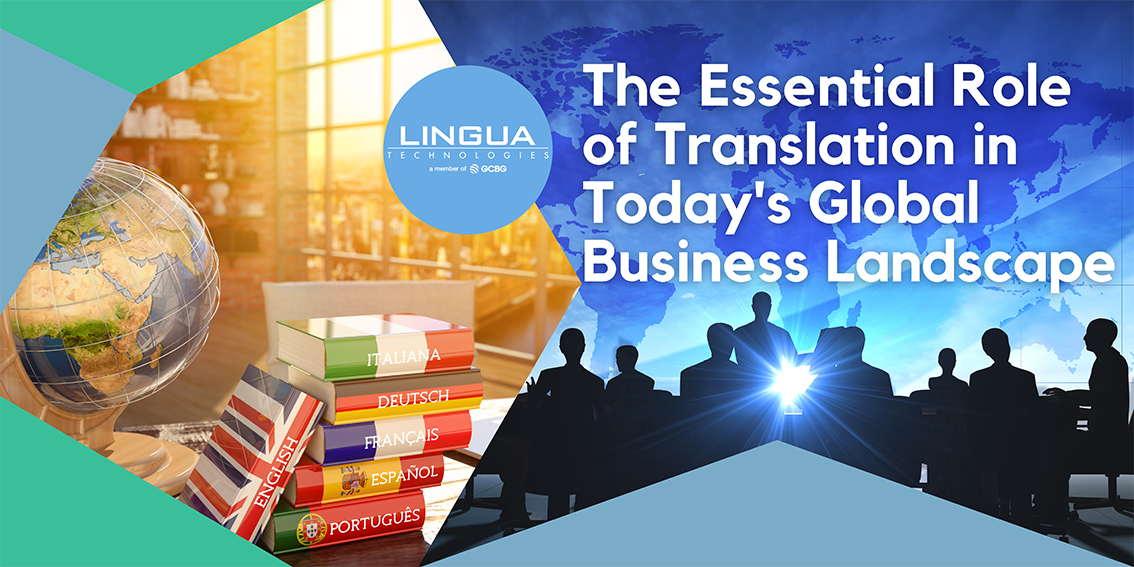In our interconnected world, where borders are increasingly blurred, businesses are expanding their reach across different countries and cultures. To be successful in this global marketplace, effective communication is paramount. That's where translation comes in. Translation has become an essential tool for businesses, enabling them to bridge language barriers, connect with diverse audiences, and unlock new opportunities. This blog will explore why translation is more vital than ever for businesses today.
Expanding into New Markets
One of the primary reasons translation is essential for businesses is its role in expanding into new markets. By translating marketing materials, product descriptions, websites, and other content into the languages spoken in target markets, businesses can effectively communicate their value proposition to a broader audience. Localization, which goes beyond translation by considering cultural nuances and preferences, ensures businesses can resonate with local customers. This approach builds trust, enhances brand perception, and increases the chances of success in new markets. Without translation, businesses would face significant barriers in reaching potential customers in different regions, limiting their growth potential.
Connecting with Multilingual Customers
In today's multicultural societies, businesses encounter customers who speak various languages. To provide exceptional customer experiences, it is crucial to communicate with customers in their preferred language. By offering multilingual customer support and communication, businesses can effectively address queries, concerns, and complaints, thereby strengthening customer relationships and loyalty. Businesses that can provide personalized, language-specific customer experiences in a competitive marketplace have a clear advantage. Translation facilitates this by breaking down language barriers, ensuring customers feel understood and valued, and fostering positive interactions that drive customer satisfaction and repeat business.
Enhancing Brand Reputation
Translation plays a pivotal role in shaping a business's brand reputation. When businesses communicate with customers in their native languages, it shows respect, understanding, and a commitment to meeting their needs. Such efforts build trust, credibility, and a positive brand image. On the other hand, inadequate or inaccurate translations can lead to misunderstandings, misinterpretations, and even damage a business's reputation. Investing in professional translation services ensures accurate and culturally sensitive translations that align with the brand's values. By effectively communicating in multiple languages, businesses can create a strong global presence, expand their customer base, and establish themselves as reputable and reliable players in the international market.
Enabling Global Collaboration
Collaboration with international partners and teams is increasingly common in today's interconnected business landscape. Clear and effective communication is vital for successful collaborations, regardless of language barriers. Translation enables businesses to bridge these gaps, facilitating smooth communication and understanding among team members who speak different languages. Whether exchanging emails, attending virtual meetings, or working on joint projects, accurate and timely translations ensure that ideas, instructions, and feedback are conveyed accurately across languages. Effective collaboration enhances productivity, encourages innovation, and strengthens relationships, enabling businesses to tap into diverse talents and perspectives.
Adhering to Legal and Regulatory Requirements
Operating in different countries often means navigating local laws, regulations, and compliance requirements. Legal documents, contracts, and other important materials may need to be translated to ensure compliance and avoid misunderstandings or legal disputes. Professional translators with expertise in legal terminology and local regulations can provide accurate translations, ensuring that businesses adhere to each jurisdiction's legal frameworks. Failure to translate legal documents appropriately can have serious consequences, including financial penalties, reputational damage, and hindered business operations. By prioritizing translation for legal compliance, businesses demonstrate their commitment to operating ethically, responsibly, and in accordance with local laws.
In today's interconnected and globalized business landscape, translation has emerged as an indispensable tool for success. Whether businesses are expanding into new markets, aiming to provide exceptional customer experiences, building a strong brand reputation, fostering global collaboration, or complying with legal requirements, translation plays a pivotal role in bridging language barriers. By investing in professional translation services, businesses can effectively communicate with diverse audiences, establish trust, and unlock new growth opportunities. Embracing translation as a strategic priority enables businesses to navigate the complexities of international markets, connect with customers worldwide, and position themselves as global leaders in their respective industries.

